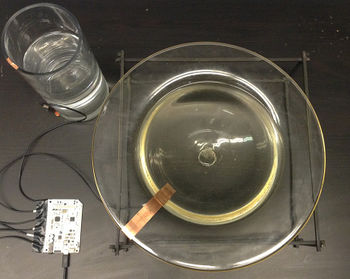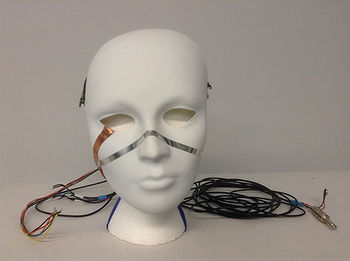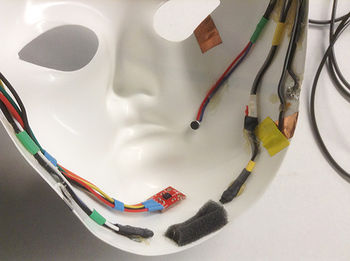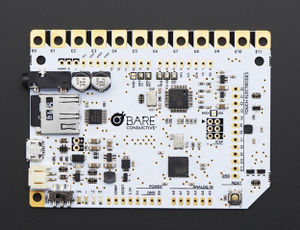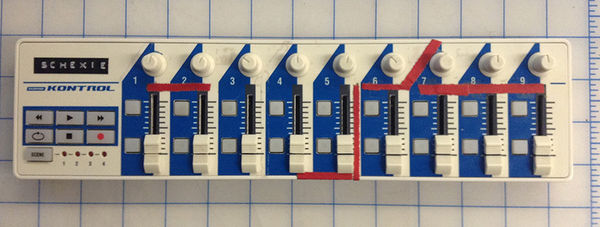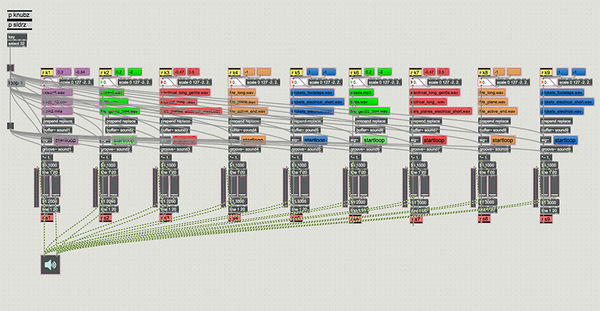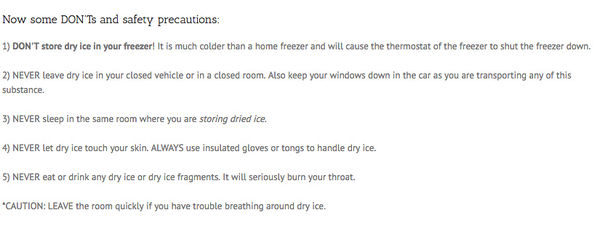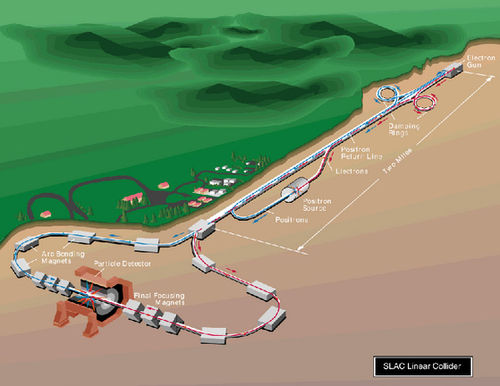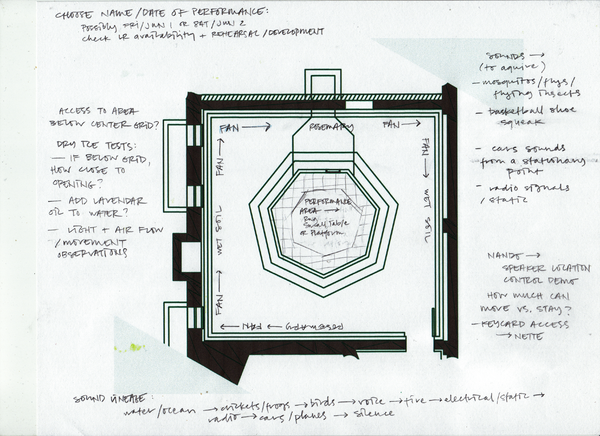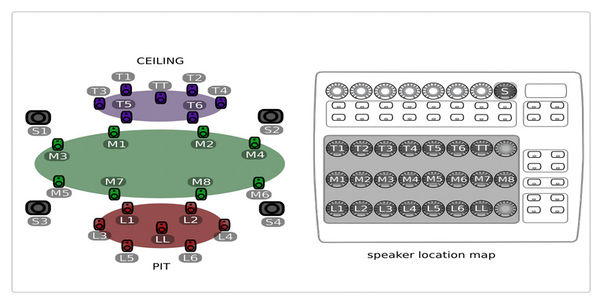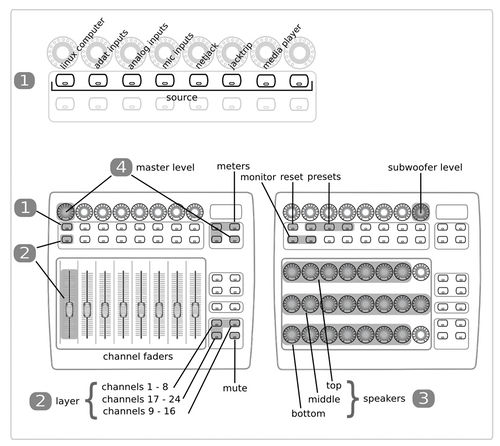Ritualistic Performance System Research
Goal: To create a ritualistic performance system using spacialized audio signals and real-time video manipulation. Ritualistic performance system to consist of water-based video controller and gestural audio looper and controller.
Background:
As part of continued research, I aim to pursue an audio/visual experience that combines spatialized field recordings, voice, sensors, video/light, and software. In its current iteration, water and conductive tape are incorporated to produce proximity sensing as a means to manipulate real-time changes to video content. The audio collection process includes listening, recording, and engaging with a series of natural and machine-made sounds. The piece will culminate in a performance, where I will direct audio signals and light using gesture and sensors. Sonic elements will be controlled using a performance mask, while manipulations of light will occur using an experimental water controller.
WK1 -- Brainstorming + Testing
Water sensor to control visual content Mask to control aural content
Performance Site -- Listening Room Okay to burn / use scents? -- No. Issues in the past. Dry Ice? -- Could be okay. Needs ventilation. Max capacity in Listening Room -- 15-20 people
To do:
Bare Conductive Touch Board + Water Sensor Testing in Max Arduino code + upload to Touch Board Max MSP/Jitter + Touch Board testing Add water sensor input to video mixer patch Collect Field Recordings Fire / Machines / Energy Facility / Electrical Drone Sounds
WK2 -- Testing + Collection
Water Sensor Testing in Max MSP/Jitter [1]
I managed to get data into Max from the Bare Conductive microcontroller. After a few minutes, the microcontroller seems to get overloaded and freezes. If I reload the Arduino code onto the board data starts to work in Max temporarily. This issue seems relatively consistent. My laptop also seems to be having trouble processing video and receiving data at the same time. The latency of sensor data into Max is painfully slow while video is running. Sensor response is proficient with no video processing.
I will need a new laptop. This is not a surprise.
Readings:
Keywords in Sound, Chapter 15, Resonance, by Veit Erlmann
"...the concept of resonance, having been derived from core epistemological virtues such as intuition, observation, and experiment, names the natural mechanism governing the interaction of vibrating matter, such as strings, nerves, and air. As such, resonance is the "Other" of the self-constituting Cartesian ego as it discovers truth (of musical harmony, for instance) and reassures itself of its own existence as a thinking entity. On the other hand resonance names the very unity of body and mind that the cogitating ego must unthink before it uncovers truth."
(Erlmann, page 177)
Keywords in Sound, Chapter 17, Space, by Andrew J. Eisenberg
"As a phenomenon that exists at once within and beyond perceiving subjects, sound cannot but reveal social space as an artifact of material practices complexly interwoven with semiotic processes and the 'imaginations, fears, emotions, psychologies, fantasies, and dreams' that human beings bring to everything (Harvey 2006: 279; see also Lefebvre 1991)."
(Eisenberg, pg 202)
The Soundscape: Our Sonic Environment & the Tuning of the World, R. Murray Schaffer, Chapter 12, Symbolism
"...water, the original life element, has the most splendid symbolism... a stream, a fountain, a river, a waterfall, the sea, each makes its unique sound but all share rich symbolism. They speak of cleansing, of purification, of refreshment, and renewal... It is symbolic of eternity... It is symbolic of change."
(Schafer, page 170)
"Without its tactile pressure on the face or body we cannot even tell from what direction it blows. The wind is therefore not to be trusted."
(Schafer, page 170)
"Modern man has sought to escape both the wind and the sea by encapsulating himself in artificial environments... The sounds of machines took on happy symbolism approximately 200 years ago, when it was realized that they could release man from his immemorial bondage to earth... power and progress... noise and power go hand in hand."
(Schafer, page 178-179)
To do:
Research options for new laptop (2015 Macbook Pro) + Stanford support
Mask controller into Max MSP/Jitter
Build simple looper
Edit field recordings
WK3 -- More Testing + Collecting
Simple Audio Looper Interface for Testing | Max MSP/Jitter + MIDI Controller:
I built a simple looper patch in Max in order to start manipulating and listening to field recordings from my recent sound hunts. Lately, I've been interested in machine sounds that have similar qualities as sounds from nature... similar to how cars sound similar to the ocean, or specific electrical resonances sound like cicadas and crickets.
audio test -- [2]
Readings:
"...the wind began to funnel down from the high southern pass, gaining more forces with each passing moment... The effect wasn't a chord exactly, but rather a combination of tones, sighs, and midrange groans that played off each other, sometimes setting strange beats into resonance as they nearly matched one another in pitch... strangely dissonant. While never unpleasant, the acoustic experience was disorienting."
(Kraus, pg 37)
The Great Animal Orchestra: Finding the Origins of Music in the World's Wild Places, Bernie Kraus
To do:
Research 2015 Macbook Pro SLAC audio recordings Research/Source dry ice Schedule Audium visit
WK4 --
Dry Ice Safety + Costs + Storage:
Searchworks Audio Finds:
Over the past week or so, I've been reading Art of Immersive Soundscapes which has revitalized my interest in musique concrète. Today I spent some time digging around Searchworks for online audio files/compilations/albums. In my hunt so far, I have found several resources that rely heavily on field recordings from nature to form audio compositions.
Here are a few:
Arctic Winds, Maggie Payne, 2010
Gateway Summer Sound: Abstracted Animal and Other Sounds Ann McMillan, 1979
Desert Winds: Six Windblown Sound Pieces and Other Works, Scott Smallwood, 2007
Highlights of Vortex, 1959, Smithsonian Folkways Recordings [2003]
SLAC Site Visit:
The tour of SLAC was a bit of a disappointment, but only because I didn't fully comprehend the context of the tour. I didn't realize our MFA tour was part of a larger public tour. Unfortunately, it was nearly impossible to record an audio sample without tour-talk and human ruckus. We only visited two small areas of the facilities, which didn't really give an overall impression of the scale of the accelerometer. There were, however, some exciting/uncomfortable oscillations coming from machinery that I would like to revisit under a more sound-oriented tour of SLAC. Outside of my sound hunt, it was astounding to hear about the some of the research taking place.
Audium:
In class, I mentioned an interest in utilizing darkness as part of my performance. Visiting Audium in San Francisco was suggested, and I've been meaning to check it out for far too long, so I looked into tickets. I plan to go to a showing in a few weeks (May 5th) and will inquire with the group about attending as well.
Floor Plan + Spacial Thoughts:
Light + Sound + Water Experiments:
To do:
Visit Listening Room Contact Nando for Listening Room Orientation Contact Nette for LR keycard access Book out LR rehearsal schedule Purchase 2015 Macbook Pro
WK5 --
I spent this week trying to iron out logistics. I met with Nando for a Listening Room orientation and am now considering the best way to execute signal routing in the space. Nando recommended I check out the Listening Room User Manual on the CCRMA website. For now, I'm thinking I'll address each speaker individually, rather than working with ambisonics. It sounds like I'll need to use Jack to interface with my computer. Speaking of computer, I bought a laptop! It should arrive next week. I was also able to arrange keycard access to the room and am still trying to pin down scheduling for rehearsal and official performance showtimes.
Possible Performance Date(s)/Times:
Friday, June 1 -- 4pm doors / 4:33pm performance
OR
7pm doors / 7:30pm performance
Saturday, June 2 -- 4pm doors / 4:33pm performance
AND
7pm doors / 7:30pm performance
WK6 --
Listening Room Mixing + Routing Research:
[6] Listening Room User Guide]
Projection/Lighting:
After visiting the Listening Room and looking at the infrastructure in place, I've decided not to do any screen-based projection that requires hanging additional material in the space. It will likely be a lot of work and ultimately be invasive to the experience. For now, I'd like to focus on the sound and possibly incorporate some simple caustic lighting elements. I'm considering options for reflecting light onto the grid that separates the floor from the lower level of the heptagon. This will require some sort of surface/screen that could easily be placed on the grid. I will need to be sure there is airflow so as not to cause any issues with the ventilation system which feeds into the lower level.
To do:
Install Max MSP/Jitter Set-up 22 Channel Routing in Max Source + Set-up RSVP Platform for Performance Contact Eoin for Listening Room Consultation Dry Ice Testing
WK7 --
Signal Routing + Listening Room Consultation:
My new computer finally arrived and I was able to schedule some time with Eoin to test routing options in the Listening Room. I've opted to use a 16ch analog interface and Jacknet, which will magically give me access to all 22 channels. I'll need to do more specific routing in Max but was able to get a signal out of my laptop and play audio over all 22 channels with minimal head-scratching and mysterious machine behavior. Eoin is awesome. I am consistently amazed at the generosity of the CCRMA community and am so grateful to have the opportunity to interact and learn from everyone.
Listening Room Booking + Conflicts:
I spoke to Matt Wright about any potential overlap with SLOrk rehearsal and general usage of the Listening Room. After our conversation, it seems best to bump my performance dates back one week so as to avoid any scheduling conflicts. Matt has also been kind enough to book out the space for me overnight so I will only need to set-up and teardown once. Wooo. Yay for CCRMA peeps!
RVSP Platform + Dates
I've decided to use Eventbrite for RSVP distribution/tracking. I've got a draft going and am seconds away from pulling the trigger. Just need to finish up my statement about the piece, and am currently wrestling with language and an official title. So close!
Friday, June 8th -- 7pm doors / 7:30pm performance Saturday, June 9th -- 4pm doors / 4:30pm performance
Dry Ice Tests:
Working with dry ice has been waaay more fun than I could have anticipated. With that said, I'm learning that the fun comes with a heftier fee than I originally thought... and it evaporates fairly quickly. A block of dry ice lasts for approximately 2 or 3 days at about $20 each. I've also discovered that the dry ice goes bananas until it's eaten up all of the oxygen in whatever water it's dropped into, at which point, the dry ice fizzles sadly with much less gusto. This happens fairly quickly. I think it will be fine for the performance, but it's possible I will need larger containers to house the water and dry. I've been most excited about projecting onto the dry ice and am thinking about ways to use the dry ice as the projection screen/surface for the performance.
To do:
Set-up Signal Routing Hierarchy in Max Publish + Distribute RVSP Invite Test Dry Ice in Listening Room Test Scent Machine in Listening Room Okay to Point Listening Room Projector Straight Down Onto Grid? Order More Fans? Dry Ice Containers / Scent Containers Edit new sounds
WK8 --
Project Statement:
Earth frequencies are the foundation of sound-making in communication and survival for all living creatures. Insects, birds, and humans have all evolved to make sound in accordance with the landscapes in which they dwell, yet humans increasingly suffocate the soundscape, turning a blind ear to the sonic residue of industry and electromagnetic poisons.
Post-human Incursion is a site-specific audio/visual performance that examines how natural order might adapt soncially to human impressions on the evolution of voice across species. Through the use of spatialized and processed field recordings, Post-human Incursion gestures toward a futuristic bending of familiar sonic terrain twisted by the influence of machinery. Vapors and visual, ephemeral traces are received and distributed through the guise of an oracle, channeling as a medium, the fragility of perceived realities. As a composition, Post-human Incursion is a poetic attempt to prophesize what the future may hold in relation to the expressive abilities and survival of sounding creatures on Earth. Do birds sing differently now that they are encumbered with the ruckus of industrialized human existence?
Friday, June 8th -- 4pm / doors -- 4:30pm / performance Saturday, June 9th -- 7pm / doors -- 7:30pm / performance
To do:
Find door person
